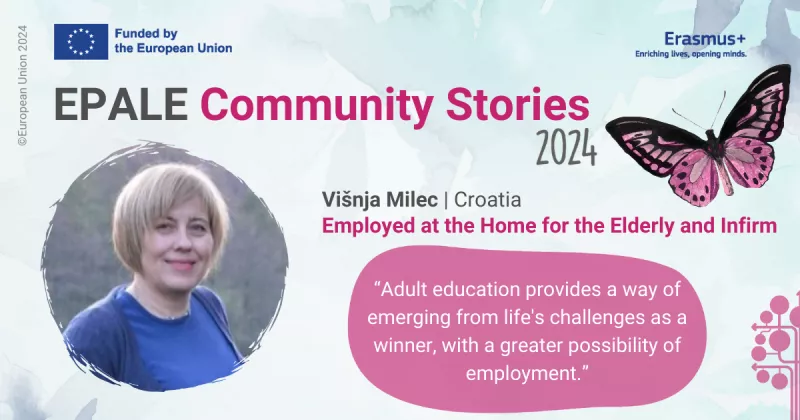EPALE summary: January-February focus on digital adult learning

EPALE Thematic Coordinator Andrew McCoshan reviews key content from EPALE’s focus on digital learning
Artificial intelligence (AI) and gamification both feature in this season’s theme. In an interview with Professors Rose Luckin and Keng Siau, Markus Palmen finds that AI stands to benefit adult learning because of its ability to draw conclusions from a massive amount of data gathered from a large number of learners. Using such data, AI can ‘show us how we learn best, precisely which tasks we find difficult and where we excel.’ In turn, this can help to personalise learning, whilst also bringing down costs. But there are risks. One is inequality: privileged learners may get the ideal mix of technology and human interaction, while poorer students get the AI but not the human interaction. We also need to make sure that teachers and pedagogues are in at the start of the application of AI to adult learning to make sure learning systems based on AI are well-designed.
Personalisation
The benefits of personalisation are also emphasised in an interview with Dr Topi Litmanen, of the education start-up Claned. Dr Limanen argues that AI’s ability to analyse how we learn is a crucial part of its potential in education and that since adult learners come with much prior knowledge there is a greater need for personalisation than for young people or children. At the same time, educational organisations may need to outsource AI services. Whilst the cost of AI technologies is likely to fall, the algorithms they use need massive amounts of data to perform well. So personalisation may go hand-in-hand with providers losing the ability to maintain their own in-house AI solutions.
Gamification
Gamification designer Oliver Šimko draws our attention to the potential of games to inform adult learning. He points out that players of online games behave in the same ways we’d like learners to act – ‘focused, engaged, entertained and willing to step out of their comfort zone.’ Furthermore, games are tremendously complicated systems in which we have to process and learn many things often at same time, but since they are extremely well designed, we don't feel overwhelmed but instead enjoy them. Applying the principles, techniques and elements of game design to learning is called gamification. However, it is not all fun and games. Šimko identifies obstacles to the gamification of learning including resistance to the idea that learning should be turned into a game and the need to make sure games are not overcomplicated and engage the learner from the start (since unlike other digital games, learning games will not be repeated many times).
The SELFIE tool
Simon Broek shifts the focus to look at one specific tool – SELFIE. This tool enables schools to reflect on how ready they are for the digital age. Though not yet adapted for use in adult learning, the tool has the potential to be so. Available in all official EU languages and based on the conceptual framework for Digitally Competent Educational Organisations, users can assess effectiveness in a range of areas including the role of leadership in the school-wide integration of digital technologies, and the adequacy of the use of digital technologies in teaching and learning. As Broek points out, we rarely discuss how adult learning providers and the organisation of learning are changed by digitalisation and ICT, so tools such as these may help to open up these questions.
Amongst all these good examples, David Mallows sounds a note of caution. He points out that, though bringing benefits, the introduction of technologies in adult learning has been slow, and the evidence of their effectiveness is limited. Problems include staff development, cost (both of the tools themselves and the infrastructure needed to best look after them, as well as necessary staff training) and in some places, a lack of connectivity. More fundamentally, we need to remember that adult education is mediated by personal relationships. Digital learning should enhance learning, and personal relationships especially, not simply continue it via a digital means.
Andrew McCoshan has worked in education and training in Europe for over 30 years. He is currently an independent researcher and consultant, an ECVET Expert for the UK, and a Senior Research Associate at the Educational Disadvantage Centre at Dublin City University in Ireland.






Interessanter Ansatz, dass